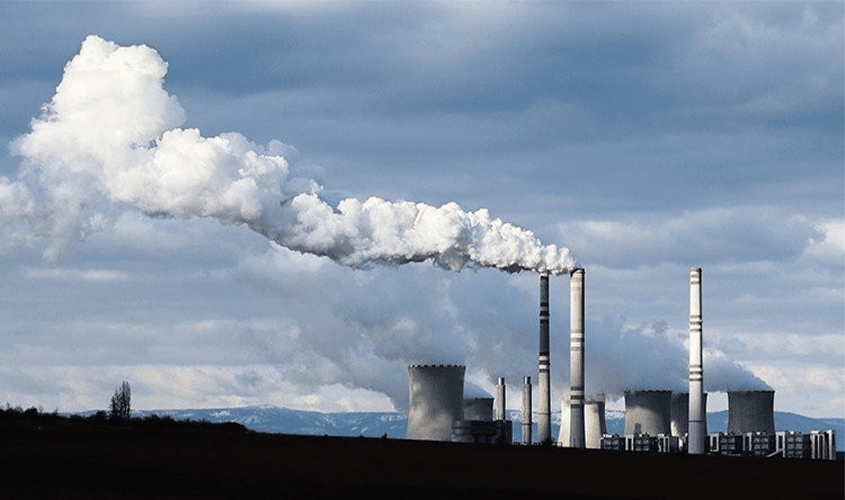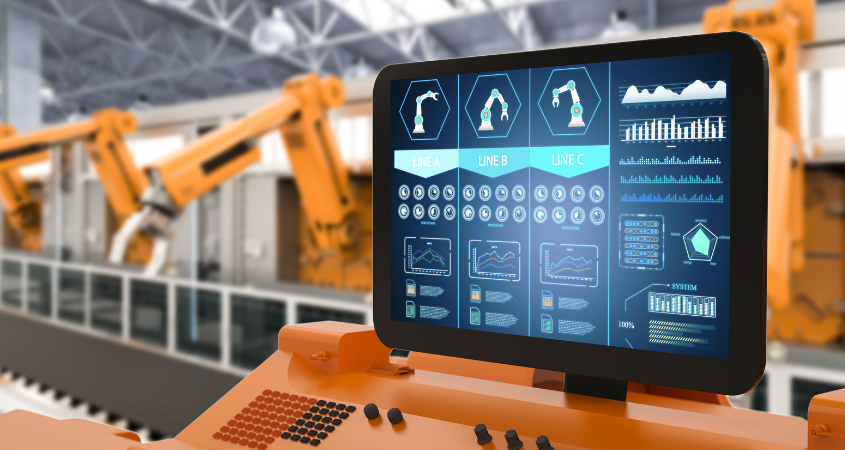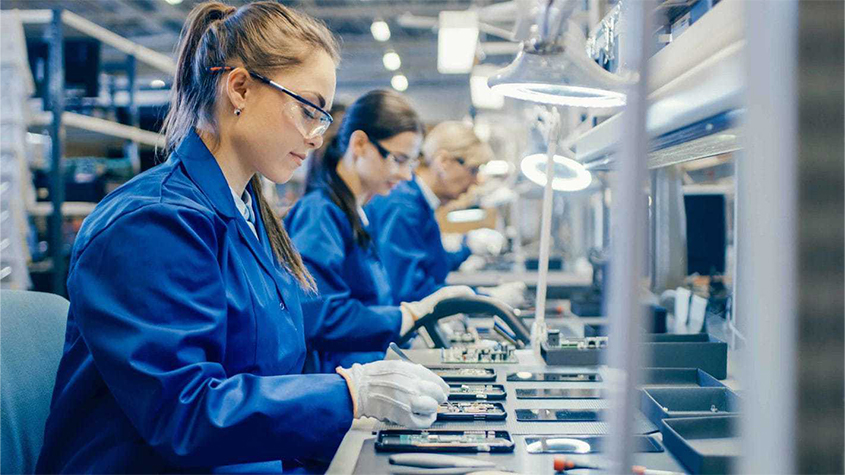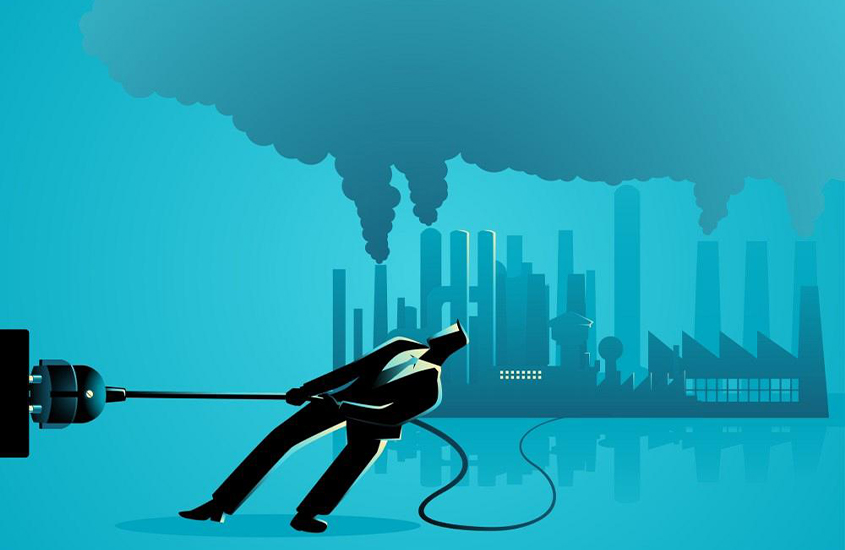Vietnam’s manufacturing boom has led to soaring energy demands, causing environmental strain. Enhancing energy efficiency in manufacturing has become crucial to reduce costs, boost productivity, increase competitiveness, and minimize the environmental impact. Explore the importance of energy efficiency in manufacturing in detail through the blog below!
Energy – The Key Determinant of Manufacturing Success
Energy fuels every facet of manufacturing operations, acting as the indispensable driving force behind machines, processes, and systems transforming raw materials into finished goods. Reliable and affordable energy access determines factories’ production efficiency, product quality standards, and overall competitiveness. In our modern energy-intensive industrial landscape, businesses prioritizing energy efficiency enjoy significant competitive advantages.
According to the International Energy Agency (IEA), energy efficiency measures could provide over 40% of the emissions reductions required to reach global climate goals by 2040. Optimizing energy consumption allows manufacturers to curb operational costs, it also minimizes their carbon footprint and ensures sustainable growth trajectories resilient to ever-evolving market pressures.
Conversely, inefficient practices burden companies with soaring overhead expenses, increased greenhouse gas emissions (the industrial sector accounted for 24.2% of global emissions in 2019 as per the EPA), and diminished adaptability. Energy efficiency transcends environmental stewardship; it constitutes a strategic cornerstone determining long-term manufacturing success and profitability.

Vietnam Facing an ‘Energy Thirst’ in Manufacturing
Vietnam’s rapidly growing manufacturing sector is facing an increasing demand for energy, fueled by the country’s economic growth and industrialization efforts. According to a report by the Vietnam Energy Partnership Group (VEPG), the manufacturing industry accounted for nearly 47% of the country’s total energy consumption in 2021.
The surge in energy demand is driven by several factors, including the expansion of existing industries and the establishment of new manufacturing facilities, particularly in sectors like electronics, textiles, and automotive. Vietnam’s energy consumption in the manufacturing sector has been growing at an annual rate of around 8% over the past decade, according to the Vietnam Energy Outlook Report 2021.
This rapid growth in energy consumption poses significant challenges for Vietnam in terms of energy security, affordability, and environmental sustainability. To address this “energy thirst,” the Vietnamese government has been promoting energy efficiency initiatives and investing in renewable energy sources. Prime Minister Pham Minh Chinh has issued a directive to save electricity in 2023 – 2025 and subsequent years, aiming to curtail the country’s overall energy consumption by 8 – 10 percent and reduce power transmission losses to 6 percent by the year 2023.
Moreover, the project “Promoting energy saving in industries in Vietnam” is implemented to encourage the judicious and efficient utilization of energy resources within the industrial sector of Vietnam. Concurrently, it endeavors to make a meaningful contribution towards attaining the nation’s overarching goals for energy conservation. Enhancing energy efficiency in manufacturing processes and adopting clean energy technologies are crucial steps for Vietnam to achieve its targets of reducing greenhouse gas emissions and transitioning towards a low-carbon economy.

The Importance of Energy Efficiency in Manufacturing in Vietnam
The importance of enhancing energy efficiency cannot be understated. Data from the International Energy Agency highlights that measures to boost energy efficiency could account for a staggering 47% of the potential reductions in carbon dioxide emissions related to energy use by the year 2030. Energy efficiency is crucial in manufacturing for several reasons:
1. Reducing operational costs
Implementing energy-saving technologies and equipment will enable businesses to significantly reduce input costs for their manufacturing processes. For instance, replacing outdated equipment and motors with newer, more efficient models will help consume less energy while still achieving equivalent output capacity.
Additionally, improving heating, ventilation, and air conditioning systems also contributes substantially to conserving energy consumption. Furthermore, optimizing production processes by eliminating unnecessary steps is also an effective measure to reduce energy input requirements.
2. Increasing productivity
Efficient energy utilization facilitates seamless operation of production lines without interruptions caused by energy shortages. This continuous flow translates into heightened output and elevated labor productivity for the company. Furthermore, automation and digital technologies streamline processes, optimizing energy utilization and amplifying productivity levels. When implemented effectively, the goal is for performance enhancements to drive productivity gains, ultimately eliminating unnecessary expenditures.

3. Enhancing competitiveness and attracting investment
Globally, investors and supply chains are increasingly favoring partnerships with enterprises that adhere to sustainable development principles. Moreover, it is necessary to meet the UN’s CO2 emission reduction targets, avoiding financial penalties.
Manufacturers adopting energy efficiency solutions are perceived as eco-friendly entities, reinforcing their competitive edge and attracting foreign investment inflows. Their products also gain a competitive advantage in domestic and international markets by meeting the rising green consumption trends exhibited by consumers.
4. Reducing greenhouse gas emissions and environmental impact
The deployment of energy efficiency initiatives, such as investing in new energy-saving technologies, equipment, and process optimization, significantly reduces greenhouse gas emissions originating from the industrial sector – currently a major polluter. Industry-related emissions constitute 29 percent of CO2 emissions in Vietnam, according to Climate Transparency. This emissions reduction mitigates climate change impacts while diminishing the sector’s detrimental effects on ecosystems and community health.

5. Meeting rising energy demands
Vietnam’s rapid economic expansion, coupled with the proliferation of industrial parks and supply chains, continues fueling an escalating appetite for energy resources. Enhanced energy efficiency plays a pivotal role in satisfying these surging demands while optimizing the use of finite energy resources, contributing to national energy security, and enabling uninterrupted business operations for enterprises.
6. Social commitment and corporate image
Energy efficiency initiatives exemplify a company’s commitment to environmental and social responsibility. This positive stance promotes an active corporate image within communities and elevates consumer appeal.
According to the Ministry of Industry and Trade, the demand for green products in Vietnam has been growing at an average rate of 15% annually between 2021 and 2023. A remarkable 72% of Vietnamese consumers express a willingness to pay a premium for eco-friendly products, reflecting the rising awareness and concern for environmental protection among the populace. Consequently, energy efficiency initiatives not only improve operational efficiency but also augment brand equity and convey a constructive message to society.
How Businesses Can Improve Energy Efficiency in Manufacturing?
The first and crucial step for businesses to improve energy efficiency in manufacturing is to conduct energy audits. Regular energy audits help identify areas of high energy consumption and provide recommendations for energy-saving measures. This initial assessment lays the foundation for implementing targeted strategies to optimize energy usage. Investing in energy-efficient technologies, such as upgrading machinery, equipment, and production processes, as well as utilizing renewable energy sources like solar and wind power, can significantly reduce energy consumption.
Optimizing production processes is another effective approach. Companies can achieve substantial energy savings through the elimination of unnecessary steps, implementation of lean manufacturing principles, and strategic use of automation. Training and raising awareness among employees through energy-saving programs and fostering an energy-conscious culture within the organization can also encourage behavior change and idea-sharing, leading to improved energy efficiency.
Additionally, businesses can leverage smart energy solutions offered by companies like Vinergy. Vinergy’s cutting-edge solutions offer a comprehensive approach to energy management, combining real-time energy monitoring, automation capabilities, and actionable insights. With Vinergy, you can effortlessly track, control, and optimize your manufacturing’s energy consumption from a single platform, unlocking substantial cost savings and minimizing your environmental footprint. To explore the boundless possibilities of Vinergy’s energy-saving solutions, get in touch with us for a consultation with our experts today!
